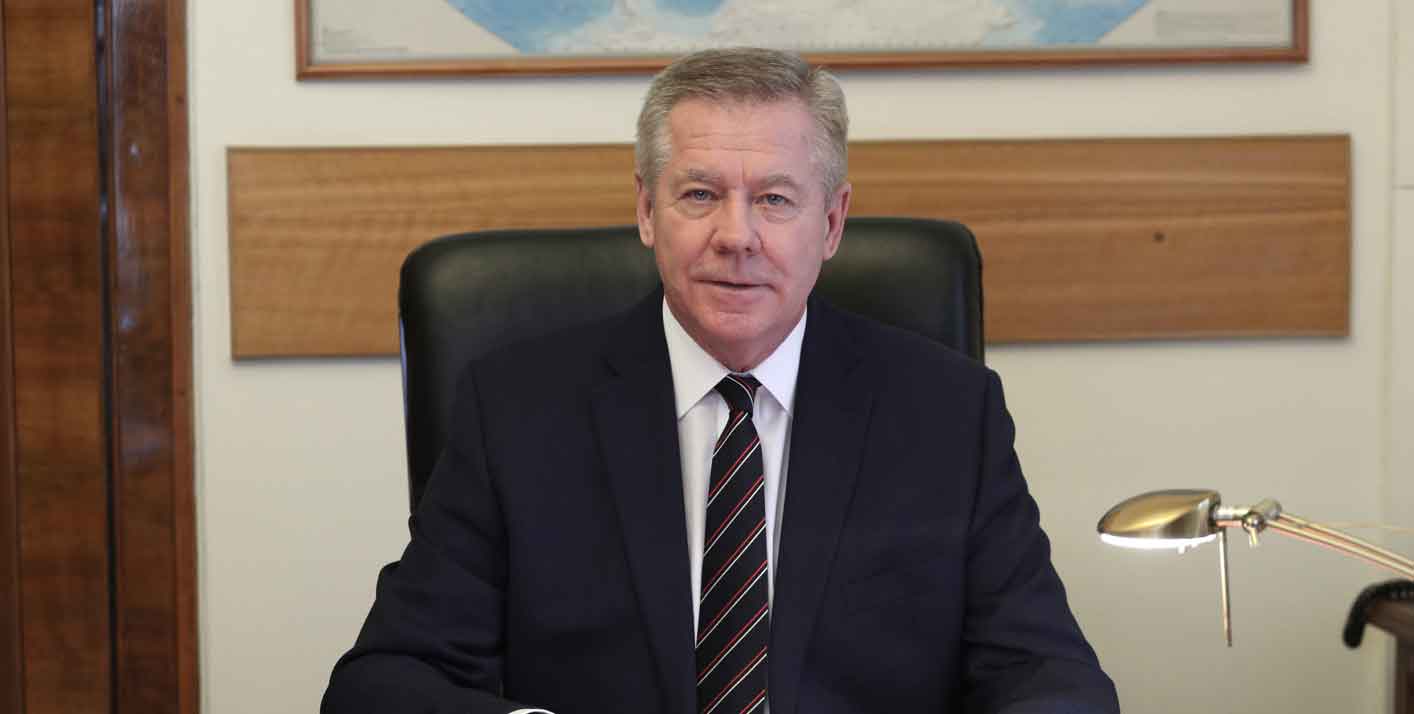UN Today has decided to include an interview with a Geneva-based ambassador every month. This month we had the pleasure to interview His Excellency Gennady Gatilov.
Please tell us briefly about your career, why you joined the diplomatic service and how you were appointed to your current position as Permanent representative of your country to the UN in GVA.
For me it was a logical choice to join the diplomatic service. My father worked as a diplomat in China, where I was born in 1950. I graduated from the Moscow State Institute of International Relations with Arabic in 1972 and subsequently worked in the Soviet embassies in Egypt and Jordan. This enabled me to acquire substantial experience in bilateral diplomacy which is very specific and important. However, I wanted to expand my horizons since I was attracted by multilateral negotiating platforms, primarily the UN. I would say that my work for the Permanent Mission of Russia in New York (1992 – 1997; 1999 – 2004) was one of the main milestones in my career, and I gained a lot from this experience.
Multilateral diplomacy is very lively and requires an extremely high degree of efficiency. In a brief period of time, you learn to communicate with different people and not only to know their approaches, but also to agree on how you can act together. I also had the opportunity to gain insight into a different perspective on UN diplomacy while working as Senior Adviser at the UN Secretary-General’s Executive Office (2004 – 2008). There are obviously major differences between working for the permanent mission and working for the UN.
I was appointed Permanent Representative of Russia to the UN in Geneva in 2018. By that time, I was familiar with the workings of International Geneva due to the fact that I had spent a long time as Deputy Foreign Minister, supervising the UN and dealing with specialized agency matters.
Can you share with us an event (positive or negative) that has marked your career and explain why?
Engaging in multilateral diplomacy – first in New York and then here in Geneva – was a very fulfilling and challenging experience. In fact, multilateral diplomacy greatly broadens one’s vision on many problems and thus helps you to achieve your full potential.
One of the hardest and most uncertain times for me, like for many diplomats of my generation, was the period after the Soviet Union had collapsed. The foreign policy of our country was seriously tested and underwent a long process of formation, defining identity and true national interests.
What are the main national priorities that you defend before the UN and its agencies in Geneva?
Geneva, along with other UN capitals, continues to be at the forefront of global efforts. It remains the leading multilateral forum for addressing a wide range of issues – from human rights to healthcare cooperation and international mediation.
One of the main tracks for us is the UN Human Rights Council. After a four-year hiatus, Russia is back in the Council. It is not only a privilege, but also a great responsibility. We believe that equal cooperation between States based on the rule of international law, respect for sovereignty and equality of States should be the main principle in the work of the UN in the field of promoting and protecting human rights.
In November, Russia’s admission to the International Organization for Migration was approved by the IOM Council. Russia has been interacting with IOM as an observer since 1992 and is interested in expanding this cooperation. We will join the IOM after all relevant internal procedures are completed.
We have sought to encourage an early stabilization of the conflict in Syria with a view to successful political and diplomatic resolution, while combating the terrorist threat. As a party to the Astana format, Russia supports the efforts of Special Envoy Geir Pedersen and facilitates his work by engaging with the Syrian sides to the conflict, including establishing an intra-Syrian dialogue within the framework of the Constitutional Committee. We are working actively on overcoming the humanitarian consequences of the events in Nagorno-Karabakh, staying in close contact with UN HCR and ICRC.
The global response to the new challenges of the COVID-19 pandemic is currently the focus of our special attention. Russia has consistently supported the leading role of the WHO in coordinating international efforts to combat the COVID-19 pandemic.
What are your views on online meetings and their long-term impact on multilateralism?
I am convinced that online meetings are just a temporary solution and that delegates will return to the conference halls and negotiation rooms – after all, nothing can replace face-to-face meetings at the UN. Experience has shown that the remote format is not only more expensive, but it is also less effective on account of procedural and administrative obstacles. But whatever the format is, I am convinced that the future of international cooperation lies in constructive and respectful dialogue between sovereign and equal states, based on the principles of the UN Charter. Understanding this by all Member States is the key to the success of the UN.



